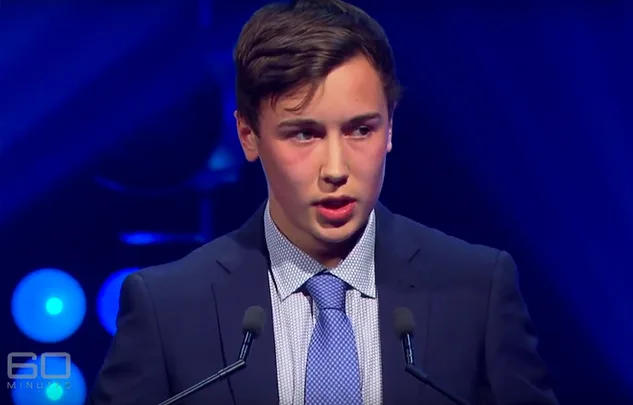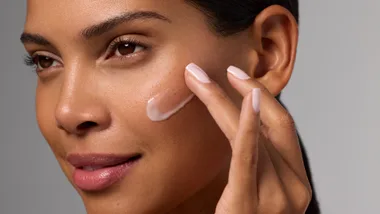Being thrashed with thongs, having your bed urinated on, getting dropped blind-folded somewhere in the state hundreds of kilometres from home. Your door being kicked in while you’re sleeping, your room being ransacked, walking into a dining room and having abuse screamed at you by your peers.
These are just some of the hazing rituals that have come to light this year from colleges on Australian university campuses.
It forms the alarming backdrop to a corollary of this depravity: the incidence of sexual assault at universities and the prevalence of sexism that supports it.
A post published on Sydney University’s St Paul’s College’s Facebook page in March this year is a sad case in point. It read:
“G’Day Lads,” it begins.
“If you ever want to get rid of some chick who either (a) won’t leave your room after a root in the morning or (b) if you’ve harpooned a whale and she’s taking the whole bed preventing all chances of sleep, I’ll be there with a purposeful c–kblock to rescue you….”
The post continued, but you get the picture.
The College’s initial response to the post, which had attracted 100 likes in the time it was up, seemingly underscored the problem. The college warden Dr Ivan Head began his almost leisurely response: “Gentlemen, I was obliged to make the following statement to the media earlier…” He urged the boys to consider their “CVs” before reminding them of the relevant party line about ‘respecting women’.
Within days the official response from Australia’s oldest residential college escalated. The warden and the St Paul’s Chairman Angelo Hatsatouris resigned.
Whether it’s sexual assault or hazing, it almost seems expected that university students accept what is thrown their way as par for course. Surviving initiation is a rite of passage that will cement a person as welcome and worthy.
Yet that attitude has dangerous consequences.
On Sunday evening Channel Nine’s 60 Minutes aired a devastating interview with Ralph and Kathy Kelly, the parents of Stuart, who took his own life last year after spending just one night at St Paul’s College.
Cruelly, it wasn’t the first time Ralph and Kathy had to bury one of their beloved children. In 2012 their eldest son Thomas was killed by a coward punch in Sydney’s Kings Cross.
Four years later tragedy struck their family again. There was no punch, but something catastrophic happened to Stuart and it cost him his life.
He was a popular, well-liked kid at school. He was eloquent and articulate beyond his years in advocating for change after losing his brother. When Stuart started university his parents were optimistic about his future.
They still don’t know exactly what happened but they know that his first and only night at Sydney University was transformative – in the worst way imaginable.
“We picked him up eighteen hours after spending the night there, and something had changed. He’d changed,” Ralph explained.
“We hadn’t seen him cry since Thomas died,” Kathy added.
“He was just sobbing uncontrollably. And he came home, went into his room, and basically didn’t come out for the next couple of months.
“So you can only assume something catastrophic happened to him, to make him feel the way he did.”
He took his life at age 18.
Exactly what took place that night at St Paul’s remains unknown, but from the news reports that have emerged this year alone it is clear that inhumane initiations aren’t unusual.
Two months ago Nina Funnell, the co-author of Connecting the Dots, a report prepared by End Rape on Campus Australia, revealed the experience of a former St Paul’s student, called *Aaron.
On Aaron’s first night at college a group of senior students yelled abuse at him as he walked into the dining hall. He never ate in the hall again, and was then targeted for being a “phantom” fresher.
His bed was weed on, his notes were ruined, his room was broken into often and he ended up sleeping with a sharp edged steel object under his bed. He didn’t know what he’d done wrong and eventually dropped out and attempted suicide.
Despite the fact Aaron ended up studying at another university and obtaining a PhD, he told Funnell there was “no fairy-tale ending”.
What some students – past and present – have presumably viewed as necessary rites of passage have broken others.
Reports from this year alone make it clear that too many young men and women are paying with their mental health, their trust and their futures for these brutal initiations.
It is tempting for past students to bat this off. To clutch the clichés about ‘boys being boys’ or about the current generation being a pack of snowflakes or about things being far worse back in their day.
As sure as day, those voices are there and those comments are being made.
There are men and women decrying action against the engrained misogyny as proof that feminism has gone mad. That the PC-brigade are out again ruining everybody’s fun.
But that doesn’t cut it. Pushing individuals to the brink isn’t a worthy pursuit that needs protecting.
The fact one person survives something awful doesn’t render it human. And it doesn’t mean the next person will.
The fact that 71 out of 72 women assaulted on a university campus don’t report it doesn’t render it ok. It doesn’t negate the damage inflicted or justify the behaviour.
And the dates are irrelevant.
The fact that group humiliation, violence, assault and sexism has been condoned, implicitly or explicitly, for more than a hundred years within certain institutions isn’t proof it’s acceptable.
It’s proof we have accepted a shameful cultural deficiency for far too long.
Lives are being ruined by behavior that is permitted by institutions that are meant to be serving their residents. Not breaking them.
If you or someone you know has been impacted by sexual assault, support is available by calling 1800 RESPECT on 1800 737 732 and asking to speak to a trauma counsellor.
*Not his real name.
 60 Minutes
60 Minutes









